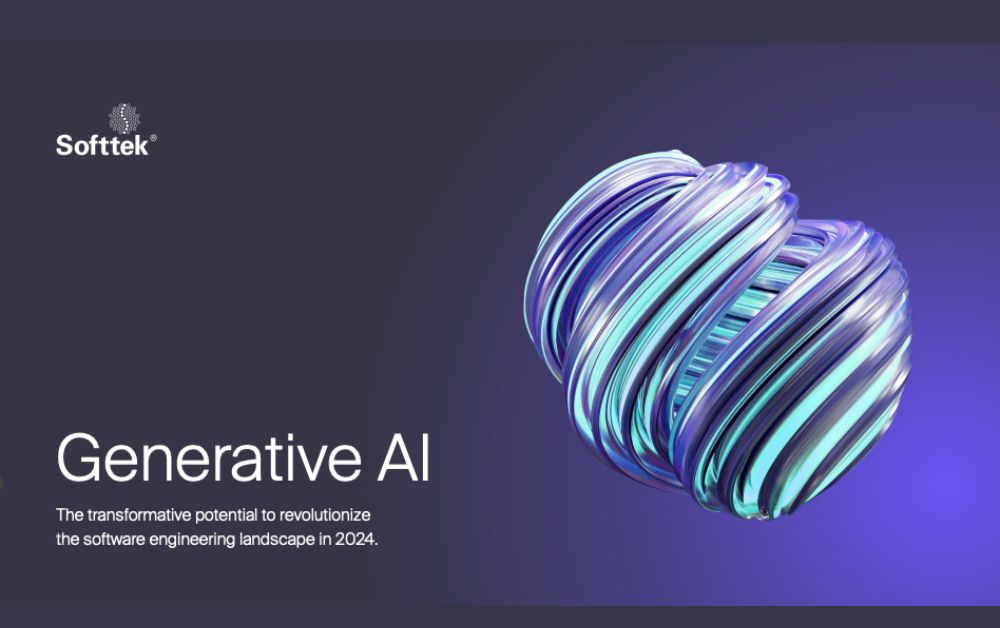Generative AI The transformative potential to revolutionize the software engineering landscape in 2024.

Generative AI and its rapid adoption have transformed the way we interact with technology, allowing machines to create, design, understand, and generate solutions and content with significant implications for sectors, companies, and consumers – a clear example was the launch of ChatGPT, which accumulated more than a million users in five days and one hundred million in two months, managing to democratize AI in a way never seen before and becoming the fastest growing application in history.
In the field of software development, the artificial intelligence revolution translates into significant increases in productivity, quality, and agility since it has an impact on various processes related to the software development cycle. Broadly speaking, it produces an increase in productivity, greatly increasing the effectiveness of routine and automatable development tasks, which can mean, depending on the project and the software, freeing up between 30% and 50% of daily time from a developer. On the other hand, AI accompanies and stimulates creativity in solution design and development tasks, increasing the ability to data efficiently and allowing articulating monitoring strategies that allow errors to be anticipated. As the development and implementation of Generative AI systems progresses, a new value chain is emerging to support the training and use of this powerful technology.




